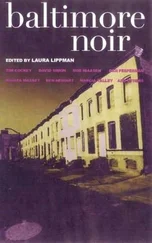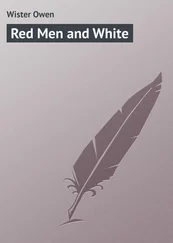Owen Wister - Lady Baltimore
Здесь есть возможность читать онлайн «Owen Wister - Lady Baltimore» весь текст электронной книги совершенно бесплатно (целиком полную версию без сокращений). В некоторых случаях можно слушать аудио, скачать через торрент в формате fb2 и присутствует краткое содержание. Жанр: Вестерн, на английском языке. Описание произведения, (предисловие) а так же отзывы посетителей доступны на портале библиотеки ЛибКат.
- Название:Lady Baltimore
- Автор:
- Жанр:
- Год:неизвестен
- ISBN:нет данных
- Рейтинг книги:5 / 5. Голосов: 1
-
Избранное:Добавить в избранное
- Отзывы:
-
Ваша оценка:
- 100
- 1
- 2
- 3
- 4
- 5
Lady Baltimore: краткое содержание, описание и аннотация
Предлагаем к чтению аннотацию, описание, краткое содержание или предисловие (зависит от того, что написал сам автор книги «Lady Baltimore»). Если вы не нашли необходимую информацию о книге — напишите в комментариях, мы постараемся отыскать её.
Lady Baltimore — читать онлайн бесплатно полную книгу (весь текст) целиком
Ниже представлен текст книги, разбитый по страницам. Система сохранения места последней прочитанной страницы, позволяет с удобством читать онлайн бесплатно книгу «Lady Baltimore», без необходимости каждый раз заново искать на чём Вы остановились. Поставьте закладку, и сможете в любой момент перейти на страницу, на которой закончили чтение.
Интервал:
Закладка:
"Why, roses," I answered; and she went into peals of laughter.
"Pray share the jest," I begged her with some dignity.
"Didn't you know," she replied, "the language that roses from a single gentleman to a young lady speak in Kings Port?"
I stood staring and stiff, taking it in, taking myself, and Eliza, and Hortense, and the implicated John, all in.
"Why, aivrybody in Kings Port knows that!" said the bride; and now my mirth rose even above hers.
XVII: Doing the Handsome Thing
It by no means lessened my pleasure to discern that Hortense must feel herself to be in a predicament; and as I sat writing my answer to the note, which was from Mrs. Weguelin St. Michael and contained an invitation to me for the next afternoon, I thought of those pilots whose dangers have come down to us from distant times through the songs of ancient poets. The narrow and tempestuous channel between Scylla and Charybdis bristled unquestionably with violent problems, but with none, I should suppose, that called for a nicer hand upon the wheel, or an eye more alert, than this steering of your little trireme to a successful marriage, between one man who believed himself to be your destined bridegroom and another who expected to be so, meanwhile keeping each in ignorance of how close you were sailing to the other. In Hortense's place I should have wished to hasten the wedding now, have it safely performed this afternoon, say, or to-morrow morning; thus precipitated by some invaluable turn in the health of her poor dear father. But she had worn it out, his health, by playing it for decidedly as much as it could bear; it couldn't be used again without risk; the date must stand fixed; and, uneasy as she might have begun to be about John, Hortense must, with no shortening of the course, get her boat in safe without smashing it against either John or Charley. I wondered a little that she should feel any uncertainty about her affianced lover. She must know how much his word was to him, and she had had his word twice, given her the second time to put his own honor right with her on the score of the phosphates. But perhaps Hortense's rich experiences of life had taught her that a man's word to a woman should not be subjected to the test of another woman's advent. On the whole, I suppose it was quite natural those flowers should annoy her, and equally natural that Eliza, the minx, should allow them to do so! There's a joy to the marrow in watching your enemy harried and discomfited by his own gratuitous contrivances; you look on serenely at a show which hasn't cost you a groat. However, poor Eliza had not been so serene at the very end, when she stormed out at me. For this I did not have to forgive her, of course, little as I had merited such treatment. Had she not accepted my flowers? But it was a gratification to reflect that in my sentimental passages with her I had not gone to any great length; nothing, do I ever find, is so irksome as the sense of having unwittingly been in a false position. Was John, on his side, in love with her? Was it possible he would fail in his word? So with these thoughts, while answering and accepting Mrs. Weguelin St. Michael's invitation to make one of a party of strangers to whom she was going to show another old Kings Port church, "where many of my ancestors lie," as her note informed me, I added one sentence which had nothing to do with the subject "She is a steel wasp," I ventured to say. And when on the next afternoon I met the party at the church, I received from the little lady a look of highly spiced comprehension as she gently remarked, "I was glad to get your acceptance."
When I went down to the dinner-table, Juno sat in her best clothes, still discussing the Daughters of Dixie.
I can't say that I took much more heed of this at dinner than I had done at tea; but I was interested to hear Juno mention that she, too, intended to call upon Hortense Rieppe. Kings Port, she said, must take a consistent position; and for her part, so far as behavior went, she didn't see much to choose between the couple. "As to whether Mr. Mayrant had really concealed the discovery of his fortune," she continued, "I asked Miss Josephine — in a perfectly nice way, of course. But old Mr. St. Michael Beaugarcon, who has always had the estate in charge, did that. It is only a life estate, unless Mr. Mayrant has lawful issue. Well, he will have that now, and all that money will be his to squander."
Aunt Carola had written me again this morning, but I had been in no haste to open her letter; my neglect of the Bombos did not weigh too heavily upon me, I fear, but I certainly did put off reading what I expected to be a reprimand. And concerning this I was right; her first words betokened reprimand at once. "My dear nephew Augustus," she began, in her fine, elegant handwriting. That was always her mode of address to me when something was coming, while at other times it would be, less portentously, "My dear Augustus," or "My dear nephew"; but whenever my name and my relationship to her occurred conjointly, I took the communication away with me to some corner, and opened it in solitude.
It wasn't about the Bombos, though; and for what she took me to task I was able to defend myself, I think, quite adequately. She found fault with me for liking the South too much, and this she based upon the enthusiastic accounts of Kings Port and its people that I had written to her; nor had she at all approved of my remarks on the subject of the negro, called forth by Daddy Ben and his grandson Charles Cotesworth.
"When I sent you (wrote Aunt Carola) to admire Kings Port good-breeding, I did not send you to forget your country. Remember that those people were its mortal enemies; that besides their treatment of our prisoners in Libby and Andersonville (which killed my brother Alexander) they displayed in their dealings, both social and political, an arrogance in success and a childish petulance at opposition, which we who saw and suffered can never forget, any more than we can forget our loved ones who laid down their lives for this cause."
These were not the only words with which Aunt Carola reproved what she termed my "disloyalty," but they will serve to indicate her feeling about the Civil War. It was — on her side — precisely the feeling of all the Kings Port old ladies on Heir side. But why should it be mine? And so, after much thinking how I might best reply respectfully yet say to Aunt Carola what my feeling was, I sat down upstairs at my window, and, after some preliminary sentences, wrote —
"There are dead brothers here also, who, like your brother, laid down their lives for what they believed was their country, and whom their sisters never can forget as you can never forget him. I read their names upon sad church tablets, and their boy faces look out at me from cherished miniatures and dim daguerreotypes. Upon their graves the women who mourn them leave flowers as you leave flowers upon the grave of your young soldier. You will tell me, perhaps, that since the bereavement is equal, I have not justified my sympathy for these people. But the bereavement was not equal. More homes here were robbed by death of their light and promise than with us; and to this you must add the material desolation of the homes themselves. Our roofs were not laid in ashes, and to-day we sit in affluence while they sit in privation. You will say to this, perhaps, that they brought it upon themselves. But even granting that they did so, surely to suffer and to lose is more bitter than to suffer and to win. My dear aunt, you could not see what I have seen here, and write to me as you do; and if those years have left upon your heart a scar which will not vanish, do not ask me, who came afterward, to wear the scar also. I should then resemble certain of the younger ones here, with less excuse than is theirs. As for the negro, forgive me if I assure you that you retain an Abolitionist exaltation for a creature who does not exist, or whose existence is an ineffectual drop in the bucket, a creature on grateful knees raising faithful eyes to one who has struck off his chains of slavery, whereas the creature who does exist is—"
Читать дальшеИнтервал:
Закладка:
Похожие книги на «Lady Baltimore»
Представляем Вашему вниманию похожие книги на «Lady Baltimore» списком для выбора. Мы отобрали схожую по названию и смыслу литературу в надежде предоставить читателям больше вариантов отыскать новые, интересные, ещё непрочитанные произведения.
Обсуждение, отзывы о книге «Lady Baltimore» и просто собственные мнения читателей. Оставьте ваши комментарии, напишите, что Вы думаете о произведении, его смысле или главных героях. Укажите что конкретно понравилось, а что нет, и почему Вы так считаете.










